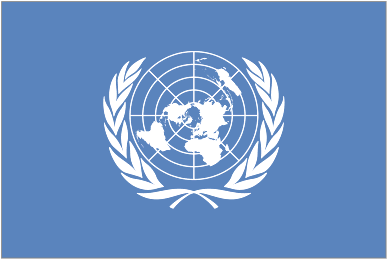
Despite the appeals for united and concerted action to help end the escalating violence in Syria, the Security Council today failed to adopt a resolution that would have threatened sanctions on Damascus, owing to the negative votes of permanent members Russia and China.
Eleven of the Council’s 15 members voted in favor of the resolution’s text, while two others – Pakistan and South Africa – abstained. A veto by any one of the Council’s five permanent members means a resolution cannot be adopted.
Ahead of today’s action, Secretary-General Ban Ki-moon, along with the Joint Special Envoy for the United Nations and the League of Arab States for the Syrian Crisis, Kofi Annan, repeatedly expressed the hope that the Council could reach agreement on a course of collective action to end the bloodshed in the Middle Eastern country.
“I am deeply disappointed by the failure of the Security Council today over the situation in Syria,” Mr. Ban told reporters in Slovenia, where he arrived to begin an official visit.
A separate statement issued by Mr. Ban’s spokesperson said the vote was disappointing as it comes at a time when more resolve and pressure were needed to achieve the goals endorsed by the Council, of a full cessation of violence to protect civilians and of facilitating a Syrian-led political transition leading to a democratic political system.
“The hour is grave. The international community has a collective responsibility to the Syrian people. The Syrian Government has manifestly failed to protect them,” it stated.
The statement added that the Secretary-General, together with the Joint Special Envoy and the UN as a whole, will spare no efforts in the search to end the violence and human rights violations, and to bring a peaceful democratic Syrian-led transition that meets the legitimate aspirations of the Syrian people.
Mr. Annan also expressed his disappointment that the Council could not unite and take the strong and concerted action he had urged and hoped for. “He believes that the voice of the Council is much more powerful when its members act as one,” his spokesperson said in a statement.
The UN estimates that more than 10,000 people, mostly civilians, have been killed in Syria and tens of thousands displaced since the uprising against President Bashar al-Assad began some 16 months ago.
The President of the General Assembly, Nassir Abdulaziz Al-Nasser, “deeply regrets that the Security Council has again been unable to unite and take collective action to put an immediate end to the appalling crisis in Syria,” said a statement issued by his spokesperson following the vote.
It added that the President remains deeply concerned about the “horrifying escalation” in the killing of innocent people, and that the deadlock in the Council sends the wrong signal to all parties in the conflict.
The Council is also expected to make a decision today on the future of the UN Supervision Mission in Syria (UNSMIS), which recently suspended its regular patrols due to the escalating violence on the ground and whose 90-day mandate expires tomorrow.
The Mission was set up to monitor the cessation of violence in Syria, as well as monitor and support the full implementation of the six-point peace plan put forward by Mr. Annan. That plan calls for an end to violence, access for humanitarian agencies to provide relief to those in need, the release of detainees, the start of inclusive political dialogue, and unrestricted access to the country for the international media.
“It pains me to say, but we are not on the track for peace in Syria and the escalations we have witnessed in Damascus over the past few days is a testimony to that,” the Mission’s head and Chief Military Observer, Major-General Robert Mood, told reporters in the Syrian capital today.
A bomb attack on the National Security Headquarters building in Damascus yesterday killed and wounded several Government officials. Among those killed were Syria’s defense minister and his deputy. There were also reports of clashes between Syrian Government forces and opposition fighters in several neighborhoods of the city.
Maj.-Gen. Mood noted that it is for the Council to decide the fate of UNSMIS and the UN political and military presence in Syria. “It is no secret that its members are divided on what actions are needed to end the killing and begin a political transition process,” he stated.
“For the sake of the Syrian people we need effective leadership from the Security Council and genuine unity around a political plan that meets the aspirations of the Syrian people and that is accepted by the parties,” he added.